travel well
DINNER WITH A DOCTOR: Navigating COVID on the road, in the sea, and in the air
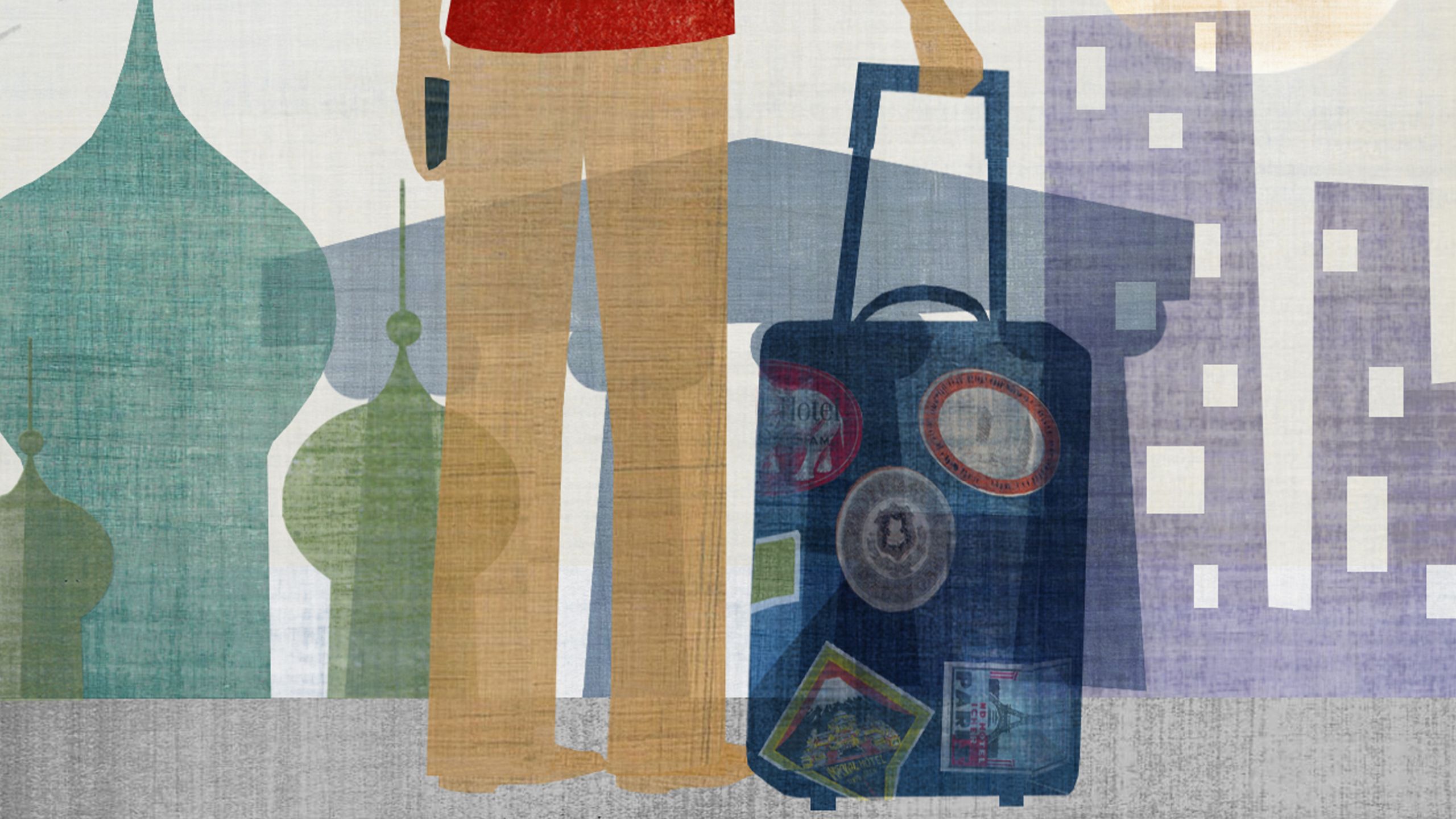
Many of us are starting to imagine—and perhaps even to plan—our next big trip by air, land, or sea.
So Emory Medicine magazine decided to invite medical epidemiologist Henry Wu, associate professor at Emory School of Medicine and director of Emory’s TravelWell clinic, to host our first virtual Dinner with a Doctor on travel safety.
On a calm evening in April, with food-delivery gift cards at the ready, our seven intrepid panelists sat down to Zoom with Dr. Wu, as thoughts of pleasure cruises, cross-country train trips, and international flights zoomed through their minds.
Wu, who during COVID-19 has been director of Emory’s Acute Respiratory Clinic, an outpatient COVID clinic and infusion center, was ready to kick back and talk travel after a year of being grounded himself.
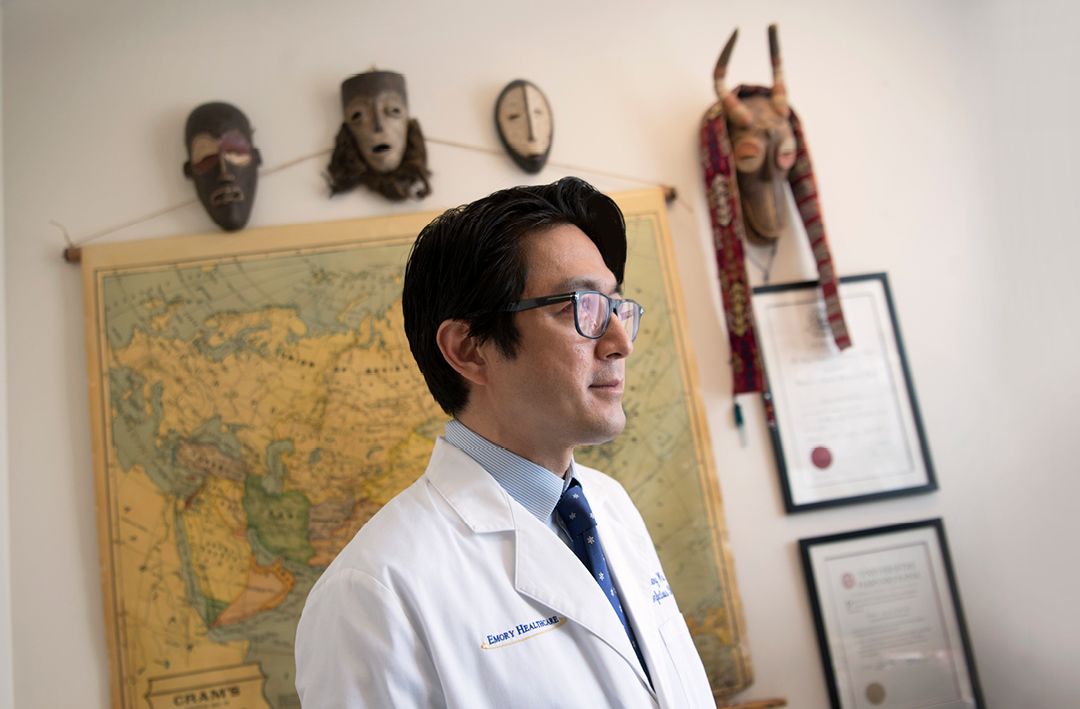
“In normal times,” he told the panel, “I do mostly travel medicine, which is multidisciplinary, involving infectious disease, emergency medicine, preventive care, and vaccinology. I enjoy exploring risks with travelers. Wherever you’re going, whatever you’re doing, be sure you do it safely.”
The COVID pandemic has made travel complicated on a lot of levels, says Wu: “There was a period where we couldn’t travel. We’re at a tipping point now that we have vaccines and a better understanding of the virus. Certainly, folks are ready to go.”
By being an informed traveler, you can minimize your risks. “Travel is important,” Wu says, “whether it’s to visit someone you haven’t seen in a while, for important business that needs to be done face to face, or just for your own mental health.”
Still, you don’t want to go on a trip and be worried the whole time about infecting your family or getting sick. “The fantastic power of some of the simple things has been underappreciated, such as hand washing, distancing, and masking,” Wu says. “They were valuable tools for not getting sick even before the pandemic.”
LAYER UP
“For more than a year now, at my clinic, we’ve been seeing COVID patients daily, some more infectious than you see in an ICU,” Wu says. “I’ve had more than 150 staff working with me and no one has gotten sick with COVID. We know how to prevent it. Most of that time was without vaccine. That has really informed the way that I inform travelers.”
A layered approach is key, he says, especially since not everyone has gotten the vaccine yet. “The vaccine is a huge jump as far as another layer of protection. For those of you who are vaccinated, the Centers for Disease Control and Prevention (CDC) has started to relax a lot of the precautions, which is an acknowledgment of how effective the vaccines in the US are,” he says. “Definitely get the vaccine if you can. For most folks, it’s a huge advantage.”
But Wu doesn’t believe people who are vaccinated should immediately jump back in as if everything were back to normal. “The good news is, everything is that much safer for you if you are vaccinated. But my goal is to keep you out of the hospital in every way possible. And that means being vaccinated AND taking the usual precautions. Masking is not the most comfortable thing, but we’re getting used to it. In many situations, with masking plus the vaccine, plus extra distancing, honestly, I can’t imagine people getting sick.”
Infectious disease is not just about exposure, it’s about inoculum dose: the amount and time of exposure. “That’s why, if somebody is jogging by you on the street without a mask, you don’t need to panic,” Wu says.
As COVID spreads primarily through the air, there’s only a small potential for spread through touching contaminated surfaces, he adds. “A lot of the larger droplets fall out of the air pretty quickly and are caught by masks, even the cheap paper ones,” he says. “More insidious are the small aerosols that hang out in the air a little longer and potentially travel even farther than six feet. They tend to build up in a crowded environment, which is why we have superspreader events.”
Jennifer: About air flight and being on a plane, I can see staying masked for a short flight, but for a long transcontinental flight, to the African continent, that’s a long flight. I am likely going to want to have something to eat or drink. Is it a concern to take off my mask and have a meal on the plane?
Wu: The good news is, on an aircraft, the air exchange and recirculation rates are fantastic. The air in the cabin is replaced every few minutes. That’s better than anything you will find indoors in your day-to-day life. And the air is filtered through HEPA filtration, very high efficiency. The only thing I can imagine that is better is a hospital operating room. It’s already very protective, and when you put everyone in masks, that makes it even better. All evidence we have suggests the transmission risk on airplanes is extremely low. If you want to eat or drink for limited periods of time, I wouldn’t think too hard about it. But try not to have your mask off for prolonged periods. This is not the time to have a leisurely dinner or sip a glass of wine for a long time. Be quicker about it than usual. If the person next to me is not being great with masking, or looks sick, the less likely I will be to take my mask off. I am constantly assessing my situation. For shorter flights, I’d take meals and bathroom breaks before and after.
Are there documented transmissions on aircrafts? The science is a little hazy; it’s hard to prove that someone got it on a plane rather than at the hotel, the wedding, or the cab ride home. But, rarely, you can prove it through molecular sequencing, using isolates from different passengers. There have been cases of transmission on airplanes, but they have been rare. And it tends to be on long-haul flights, with no masking. If it were a major risk, we’d be seeing a lot more of it. Think about all the superspreader events we know about, in restaurants, at weddings and funerals, choir practice, etc. Flying itself is not zero risk but it’s probably very low risk compared to other things we’re doing in indoor areas. Overall, the airplane is one of the safest places to be sitting, assuming everyone is masked. Being on an eight-hour flight, assuming everyone is masked, is much safer than spending an hour in a crowded bar.

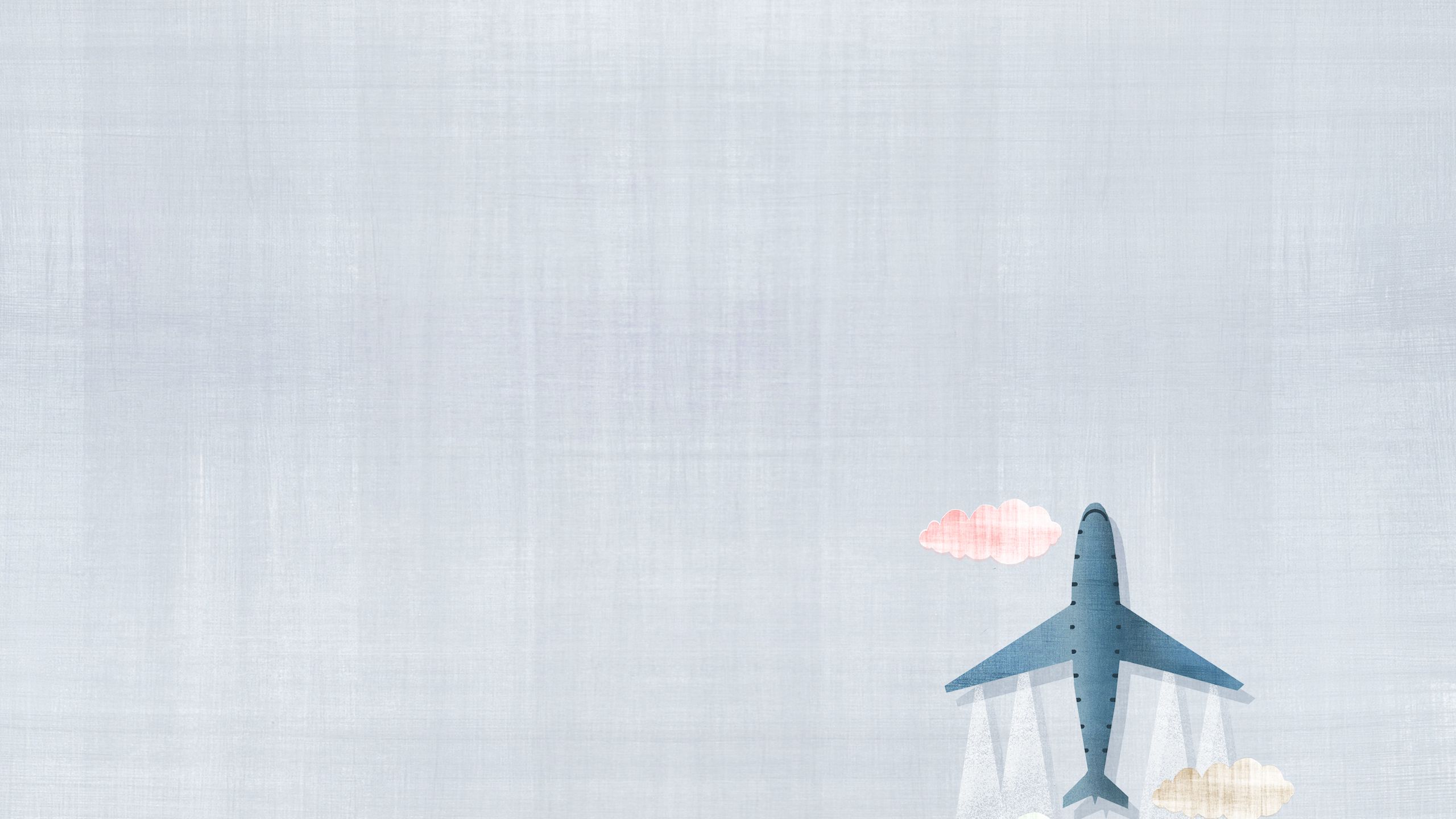
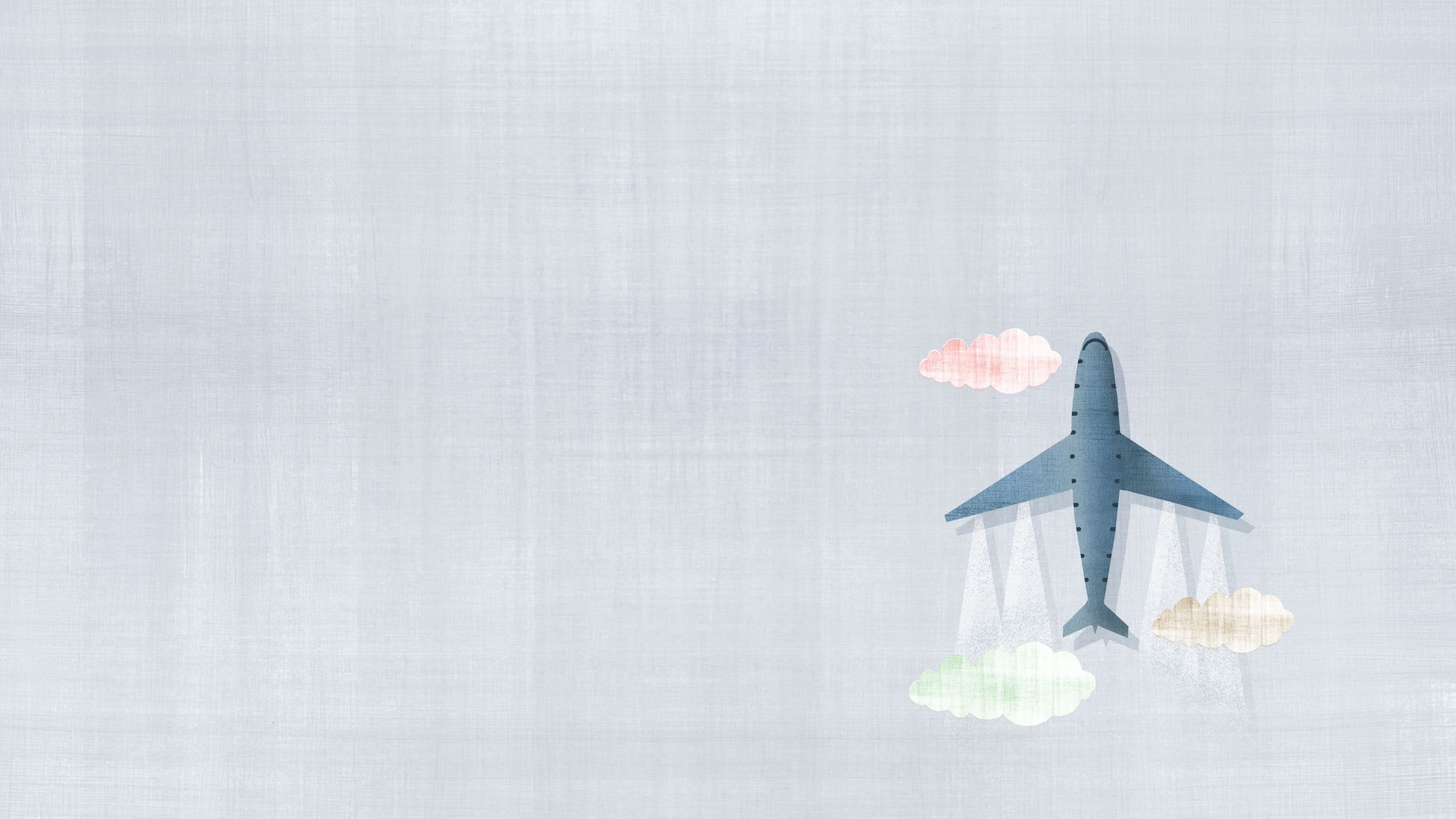
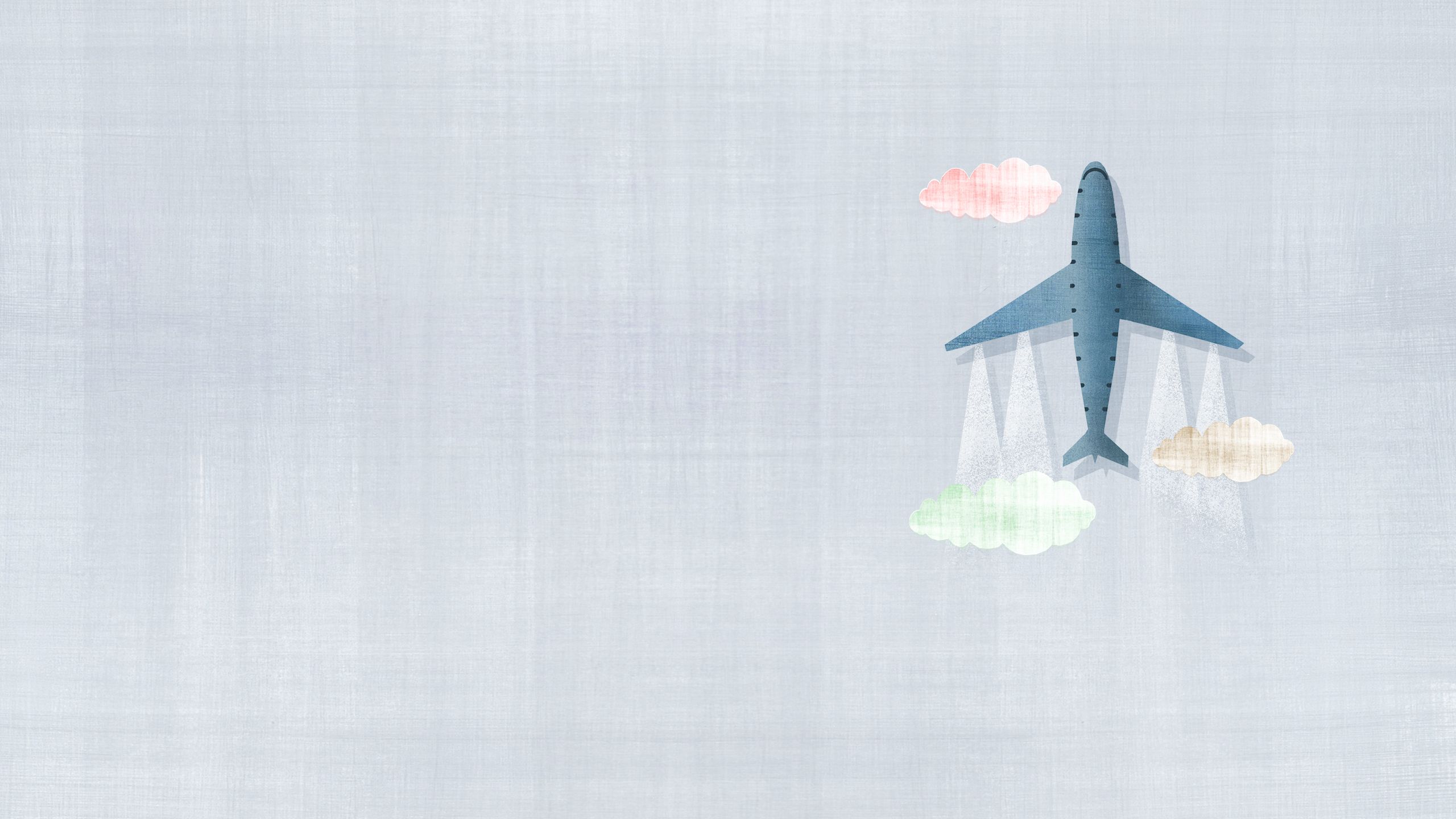
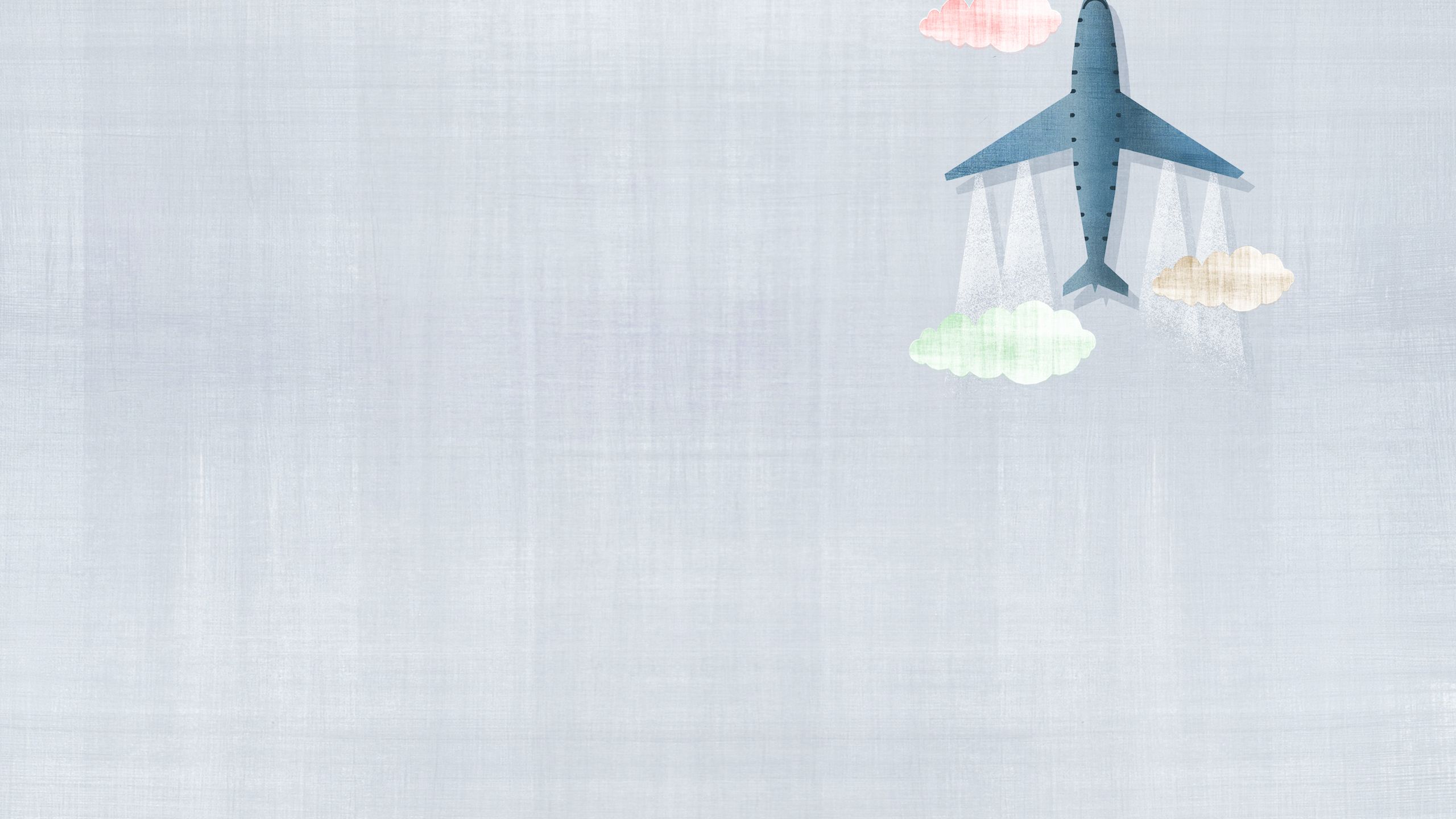

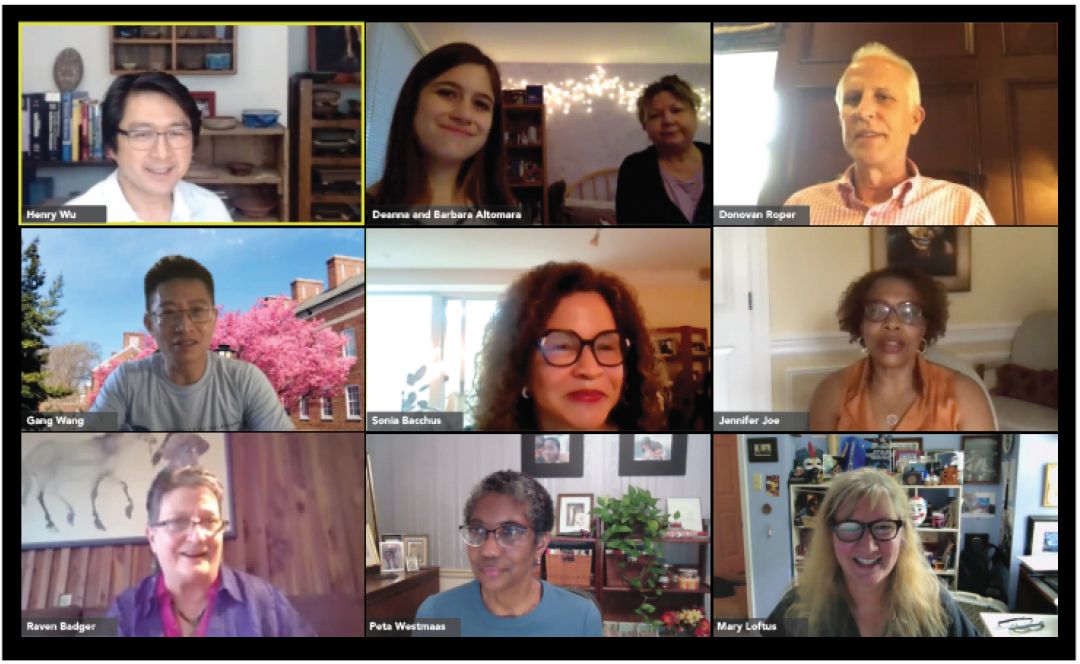
Sonia: I have a question about trains. A couple of friends are encouraging a trip from Chicago to Seattle, stopping along the way, and sharing two per person to a sleeper car. We have all been vaccinated.
Wu: A lot of the new trains are very well ventilated. How well, I don’t know offhand, it may depend on the type of car. If you’re talking about a sleeper car, sharing a space with people you know who are vaccinated, that’s much safer. Having read Amtrak’s COVID statement, the reported air changes per hour on the trains should be excellent. Furthermore, they do have a masking policy. Considering all that, I think riding Amtrak should be fairly safe, and even more so if you are vaccinated. As always, the less crowded the better.
Sonia: What about sharing a hotel room, all four of us? That also had me a little concerned.
Wu: It should be fine. The CDC has said if you’re all vaccinated you can be indoors without a mask. Is it safer if you all had separate rooms? Sure. Is it worth the expense? Probably not. If everyone is going to sleep better, maybe split up your group into a couple of rooms. These COVID vaccines are really good, effectiveness can be above 90 percent, but they aren’t 100 percent. Even if it’s a breakthrough case and you get sick after the vaccine, the chance that you would have to go to the hospital or that you might die has become fantastically unlikely. But that said, no COVID at all is still best. You don’t want to risk a mild infection that you could pass to someone else. My nuanced answer is, for a near-zero risk trip, split up a bit.
Jennifer: What should you be asking your friends to do?
Wu: That depends, what’s your acceptable personal risk level? As a personal example, I have elderly parents I haven’t seen in over a year because they live in Hawaii. I chose not to visit them last year because they’re both about 80 and my dad has severe lung disease, so even a cold could kill him. And yet, I am actually planning a trip to go see them soon. They aren’t getting any younger. I’m vaccinated; they’re vaccinated. I may still wear a mask when I’m close to my dad. There’s no data that says you have to do that, but it will make me more comfortable. A .001 percent risk is too big for me when dealing with my dad, I want to make it zero and I know how to make it zero. I’m very proactive as a traveler. I’m going to take those extra precautions.
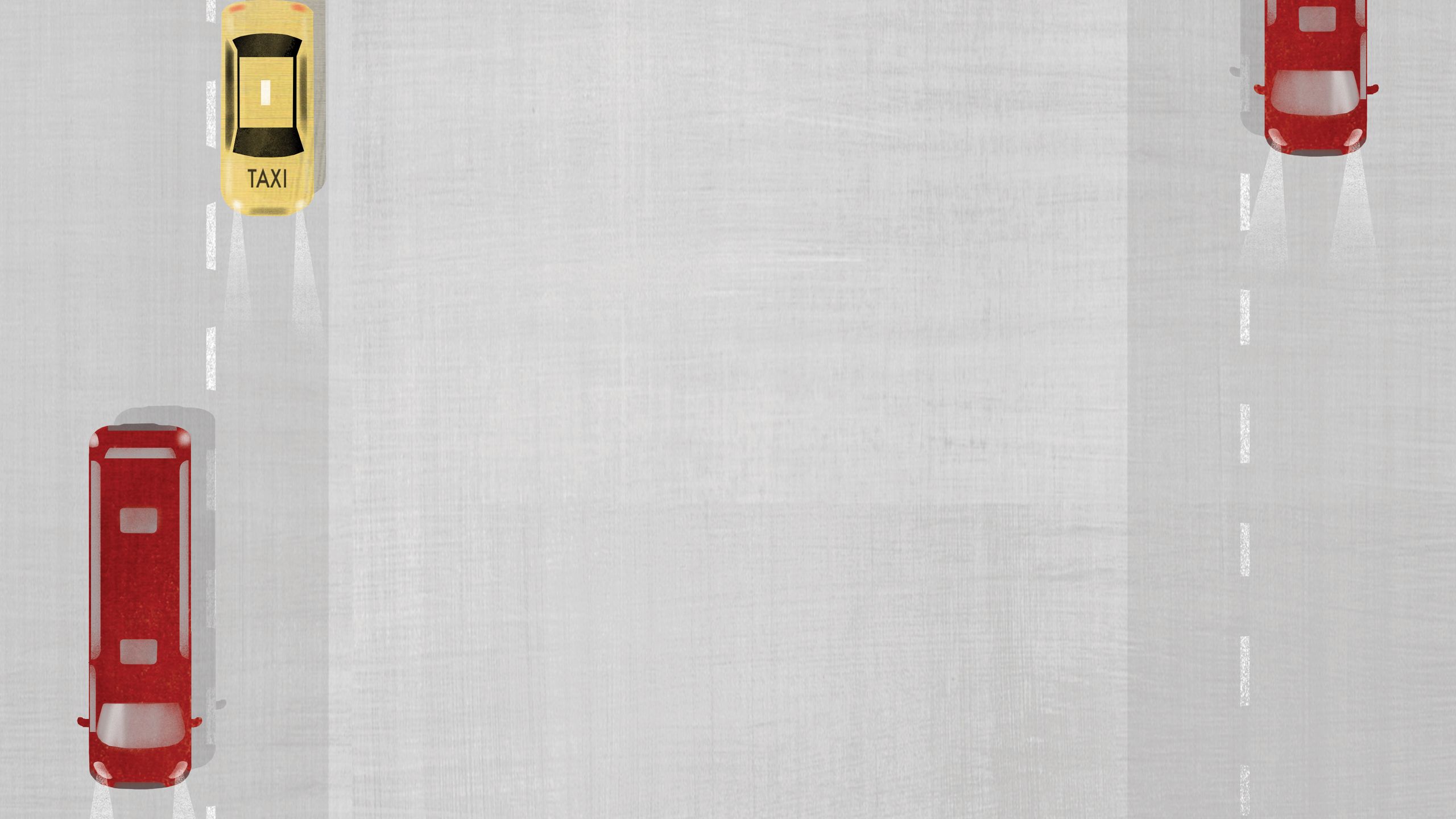
Don: When the pandemic hit, we had a couple of staggered cruises that have been rescheduled twice, both of them. One is to Portugal, the second is in Asia—Bangkok to Singapore. Should I hold out any hope?
Wu: Cruises are an interesting topic; they are unique. I once did a travel panel and one of the other speakers was the former medical director of a major cruise line; he gave a couple of talks on cruise medicine that I was blown away by. The good news is that the cruise industry is very regulated. They have learned their lesson: the last thing they need is another outbreak. And if you’re going to have a heart attack, the best place to be is on a cruise ship—there is actually an ER on the ship, they can do person-to-person blood transfusions and are fantastically well equipped. The bad news is, outbreaks have happened on cruises: foodborne, normal viruses, Legionella. COVID did a number on a few cruises. COVID was and remains a big challenge, but they are gearing up. Some lines require that everyone on the ship is vaccinated: staff, crew, and all passengers. If you’re not vaccinated, you’re not coming on board.
Don: My wife and I are both fully vaccinated.
Wu: That’s great, and even better if you get on a cruise line where everyone is vaccinated. If you are a cruise kind of person, vaccines are your best friend. In reality, there are a bunch of common areas. It’s probably going to be less crowded, though, since many cruises are limiting capacity/passenger numbers. There are going to be some intrinsic risks but that doesn’t mean not to go by any means.
Gang: I’m fully vaccinated, so I’m not worried about myself, I’m more worried about my parents in China. Are there any guidelines you could give me about visiting them?
Wu: The COVID vaccines have been shown to be fantastically effective in preventing you from getting sick, especially very sick, but still there might be the possibility you could get a mild COVID infection and transmit it. Although CDC guidance now allows most vaccinated persons to do most activities without a mask, I think it is still prudent to wear one in higher risk situations or when around those at risk of complications, which would be the case if you’re visiting elderly parents. China will test you for COVID when you arrive. That helps. So, to be super careful, you can quarantine before the trip, and you can mask when you are around your parents, especially if they are frail or at risk of complications. If they can get vaccinated, even better.
Barbara: I have another cruise question. My concern is getting off in ports. What activities will we be allowed to do? Will there be opportunities to explore? If you do have symptoms, will you be quarantined or isolated?
Wu: That depends on where the port is, and what’s happening there. You don’t want to spend all this money to go somewhere that is basically closed. Just because a country is letting in travelers doesn’t mean it’s fully opened to tourists. The cruise industry is aware of that and will probably be avoiding cities that are having lockdowns.
Off-ship activities may be less than usual. Outdoor activities are much safer, such as visiting beaches instead of cities. Definitely do your research. Few places around the world are “normal” right now.
Cruise ships are very strict about quarantines, even prepandemic. If you have a GI illness and are throwing up, they are going to make you stay in your room. The last thing they want would be you going to the buffet and causing a small outbreak. COVID rules will probably be pretty strict: maybe fever checks around the boat, maybe COVID testing. You should be prepared for that level of getting checked.



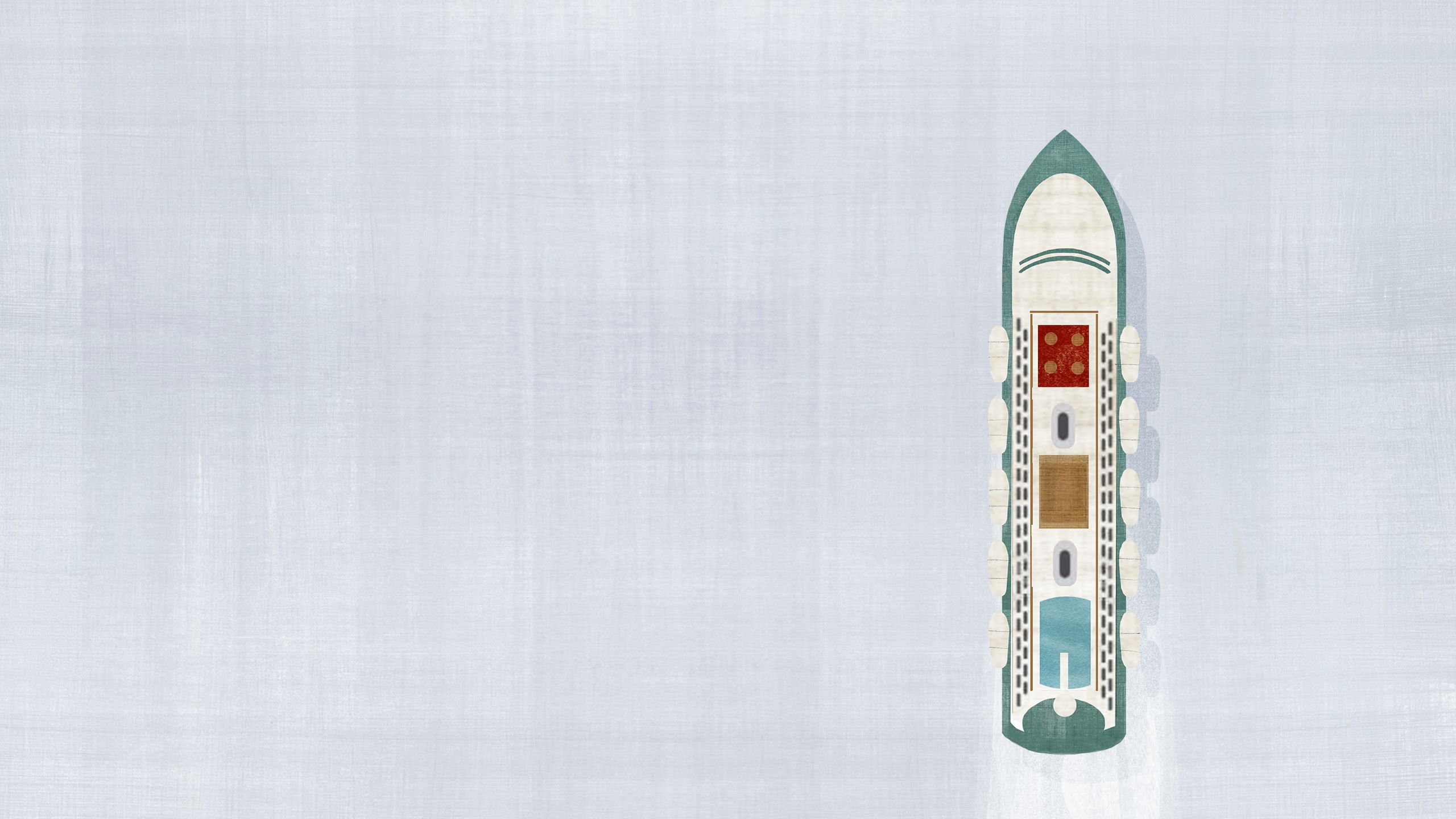
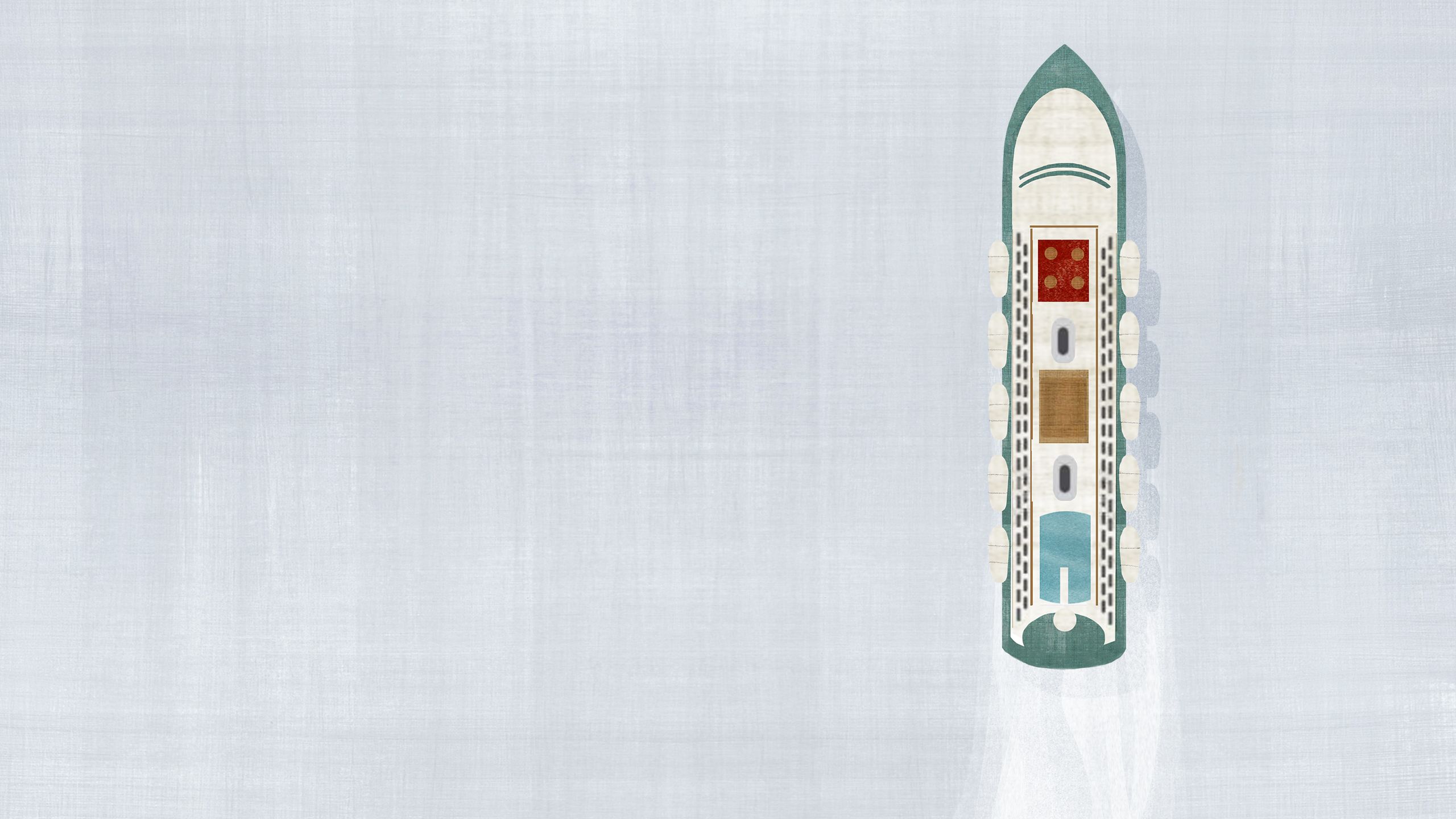
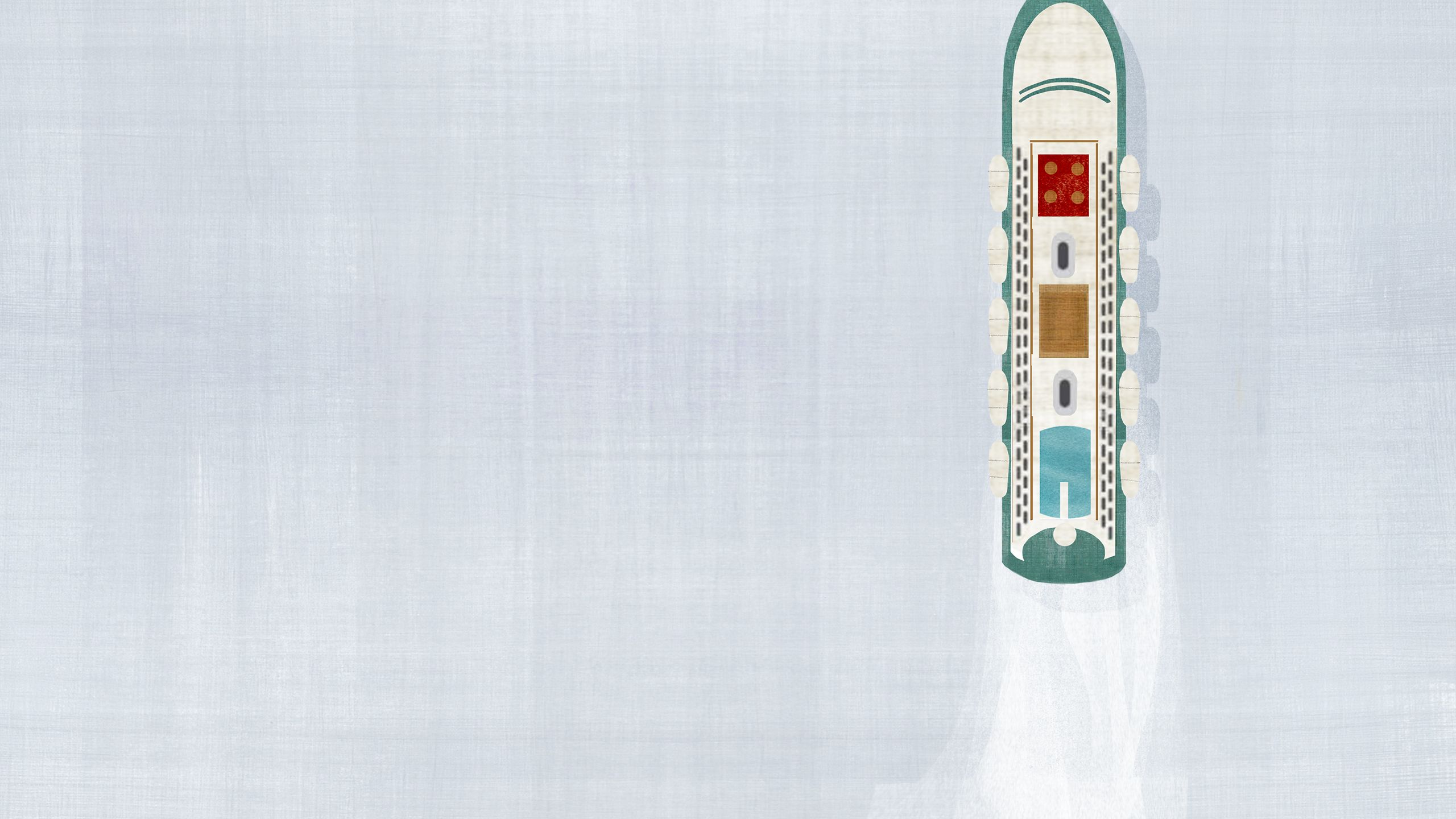

Raven: I live very rurally, two acres on the side of a mountain, so quarantining is pretty much normal behavior. I limit trips, stock up on supplies. It takes half an hour to get out to the pavement. I get concerned when I go out, or have a friend flying to see me. What communication should you have with people…have you been vaccinated? Do you mask?
Wu: Prevaccine it was a little trickier. If you are vaccinated, that is your insurance policy. I still suggest a layered protective approach, but the vaccine is a pretty thick layer. It’s not quite good enough that I would say drop everything else, but pretty darn good.
I use the analogy that the pandemic is like a rainstorm. When it’s pouring rain and you go outside, and want to stay dry, up until now you’ve only had an umbrella and a pair of boots. Now that the vaccine is here, you’ve got a really good raincoat. Now, if it’s pouring, you still want to be holding an umbrella, layering up. But when the rain starts to slow (i.e., COVID cases are low in your area) you can put the umbrella away. The raincoat is plenty. The variants are a concern and should be watched, but we’re getting there.
And I suggest, instead of following the six-foot rule, just redefine your personal space. Make it automatic. It takes retraining your mind; personal space is a cultural norm. But it’s also just common courtesy, during a pandemic, to respect other people’s space.
Deanna: What about riding mass transit, like subways, or using ride-share services?
Wu: Air-exchange rates on subways are quite high, so I think it should be pretty safe if some distancing is observed and everyone is masked.
As for buses, MARTA (here in Atlanta) did recently announce they are still limiting capacity and have installed “antimicrobial” air filters. In short, I would think either should be pretty safe if people are masked and not shoulder to shoulder, and even safer if you are vaccinated.
On the other hand, if I saw a train or bus coming that looked too crowded for comfort, I’d wait for the next one or call a ride share,
if possible.
I think ride shares (e.g., Uber, Lyft) should be pretty safe if everyone is masked and the windows are open.

PLAN AHEAD
Wu encouraged everyone to think about their trip in its entirety, not just the part on the boat, train, or plane. “Your biggest risks during travel are not infectious diseases but accidents and car crashes,” he says. “The reality is, we deal with risk every day.
“That being said, when you travel, you do stuff you don’t normally do, such as stay at hotels, go out to eat in crowded restaurants and bars, and meet up with different groups of people from different places,” Wu says.
He recommends thinking a bit more about your choices: “Give yourself a second more to assess situations and actions that used to be second nature: That elevator’s crowded, I’m going to take the next one; that restaurant is packed, I’m going to eat outside.”
Also, it’s more important than ever to plan ahead when you travel. Have multiple masks. Bring your vaccine card and/or your COVID test results. Do your homework to find out requirements in advance. Prepare for a possible quarantine, even if you’ve had the vaccine, on the off chance that you still get a mild case of COVID.
“We are getting reports from travelers of lots of unexpected situations,” Wu says. “If you only have five days off work, it could be risky to say to yourself, I am going to do A, B, and C, and be back to work on day six. You may potentially have to call and say you’re stuck for another day or two. Build in flexibility. The rules are changing quickly.”
As the COVID-19 pandemic is rapidly evolving and the scientific community’s understanding of the novel coronavirus is continually developing, some information may change. Please check the CDC website (cdc.gov) for updated guidance.
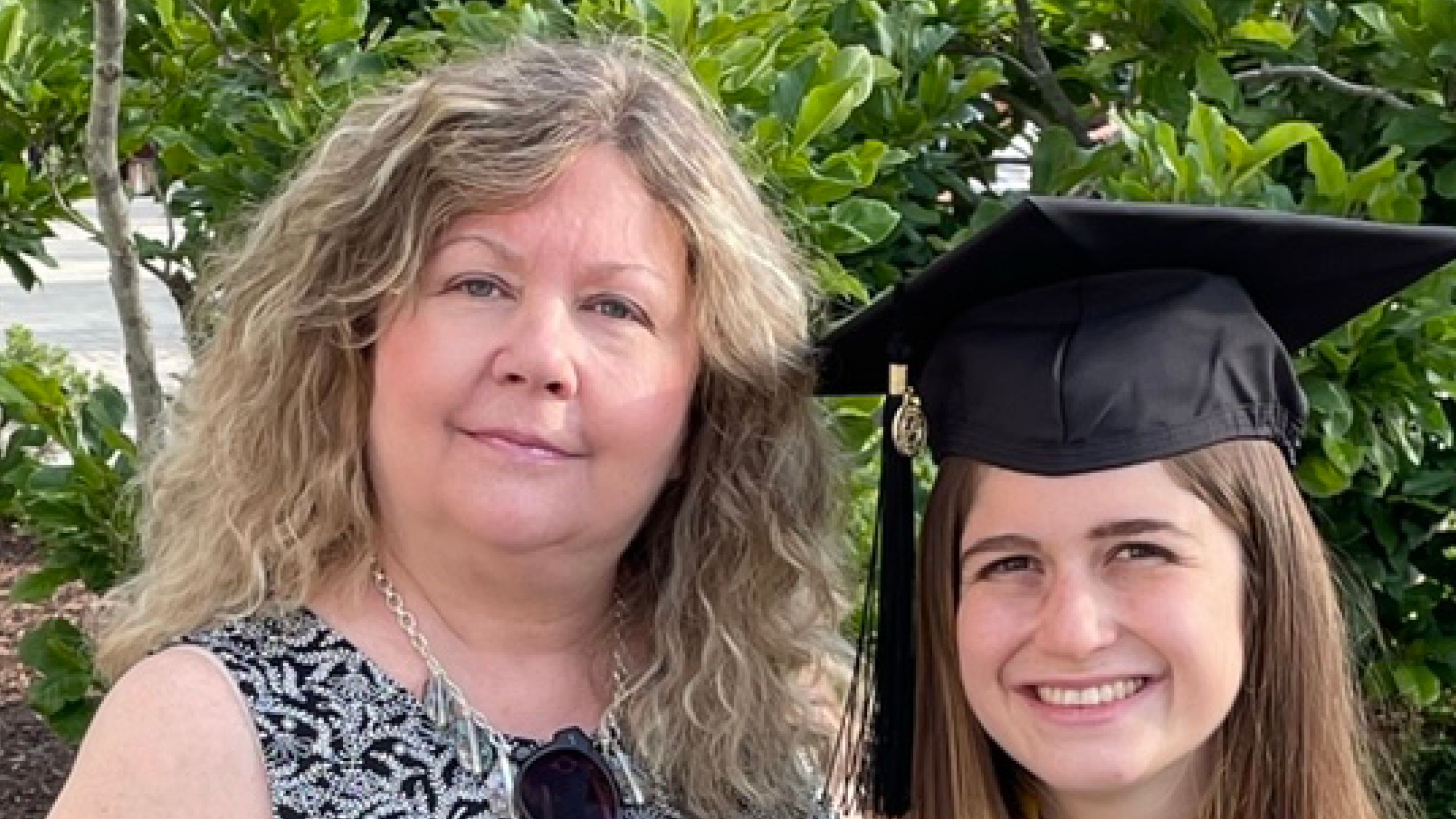
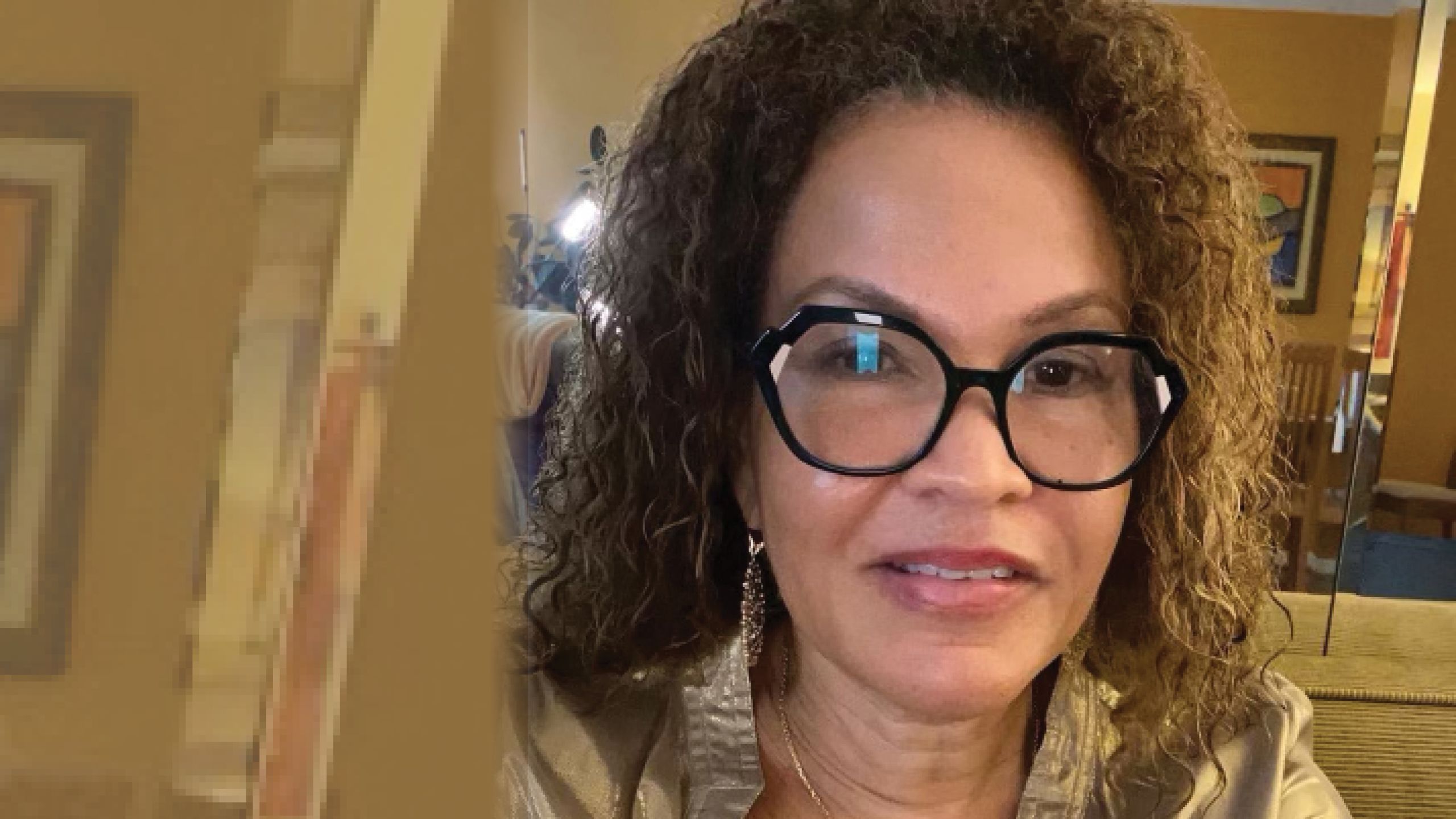
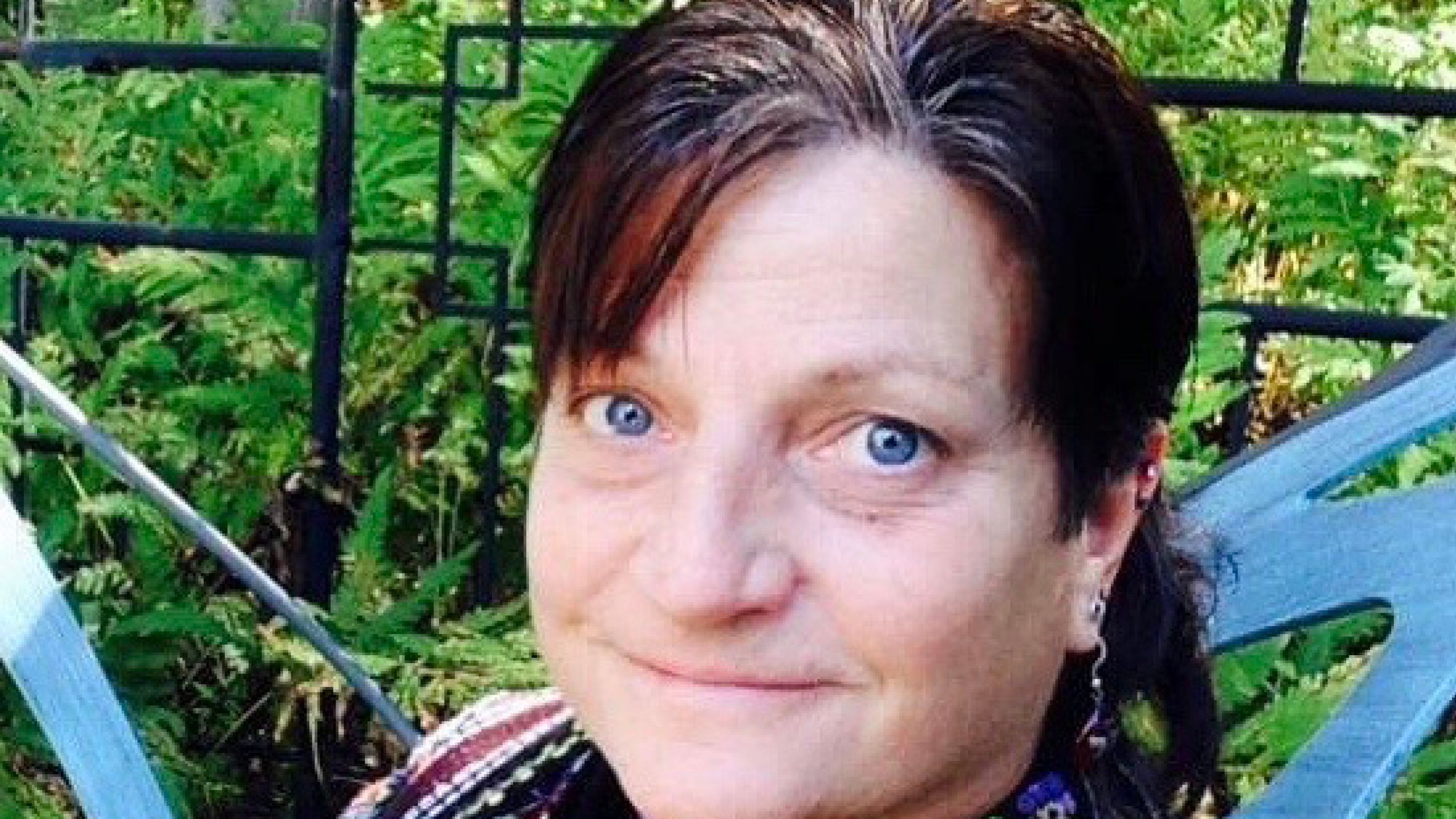
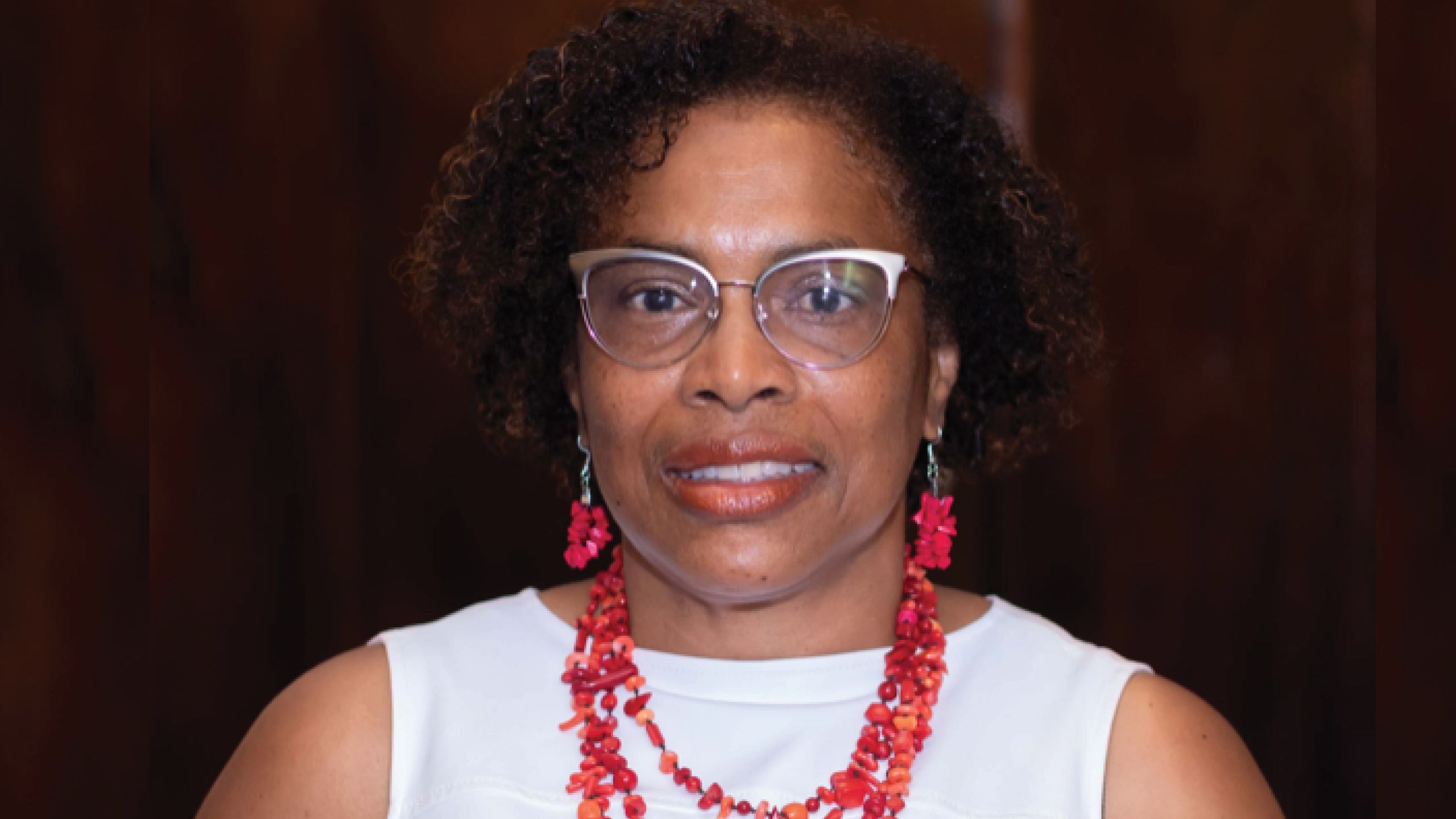
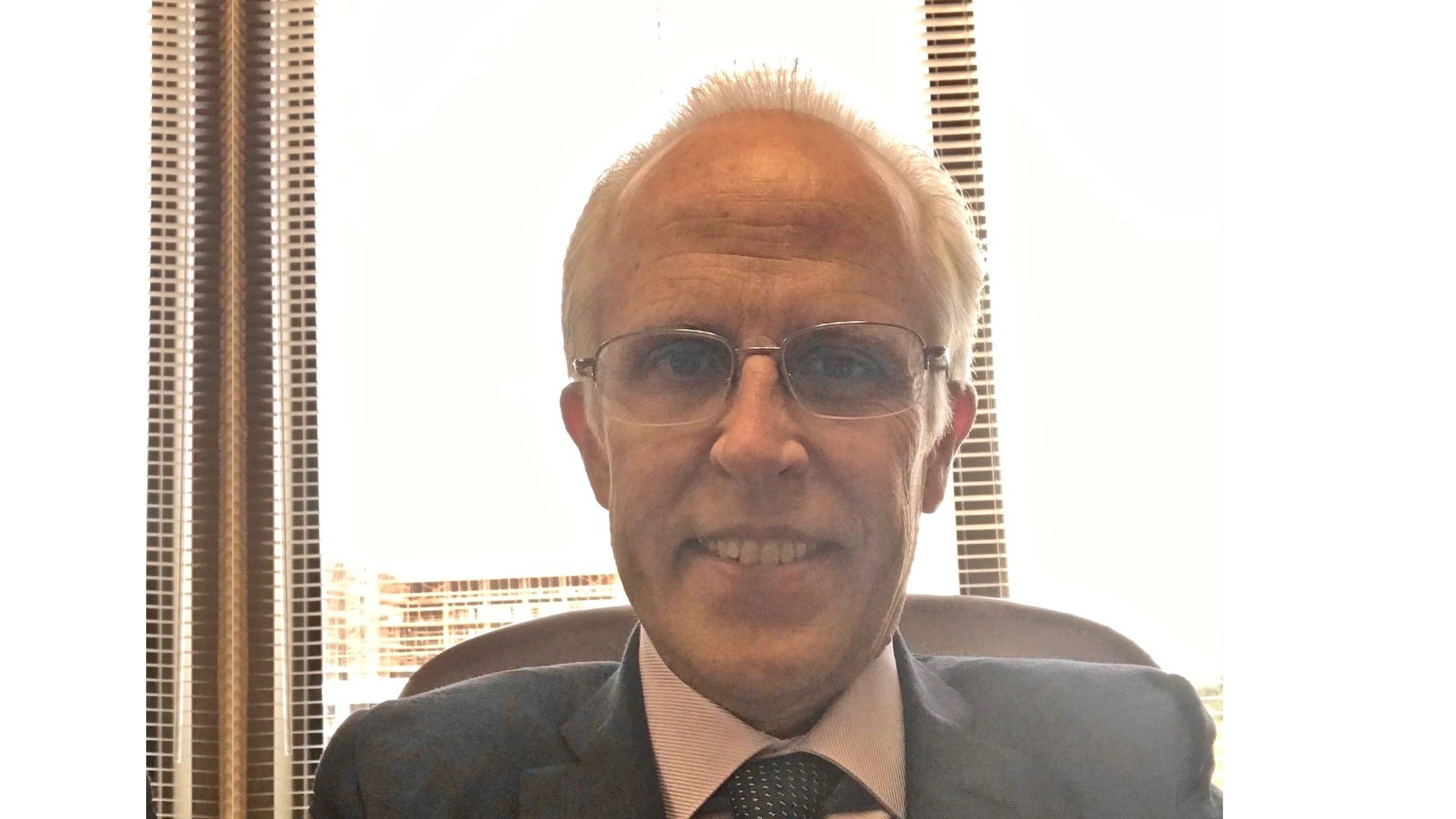
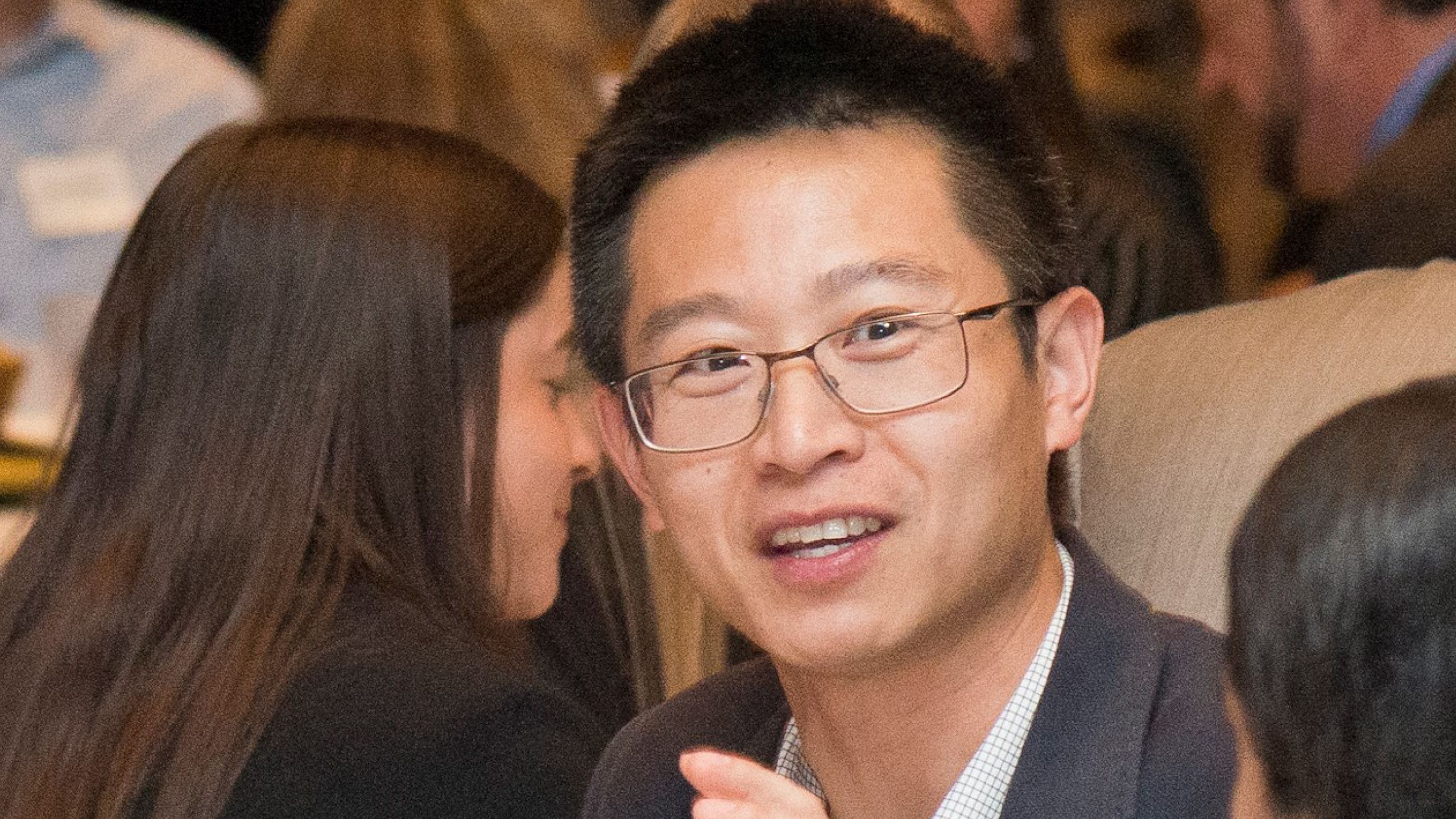

Deanna Altomara: Rising graduate student at Emory’s Rollins School of Public Health with an interest in infectious diseases. “My parents are coming down from New Jersey to visit me in Atlanta, and I want to keep them safe.” Barbara Altomara: Bank teller, Mahwah, New Jersey. “We are planning a cruise and I am wondering about port visits.”
Deanna Altomara: Rising graduate student at Emory’s Rollins School of Public Health with an interest in infectious diseases. “My parents are coming down from New Jersey to visit me in Atlanta, and I want to keep them safe.” Barbara Altomara: Bank teller, Mahwah, New Jersey. “We are planning a cruise and I am wondering about port visits.”

Sonia Bacchus: Recently retired attorney, Washington, D.C. “I had a lot of travel planned for my retirement and COVID wasn’t part of my plan.”
Sonia Bacchus: Recently retired attorney, Washington, D.C. “I had a lot of travel planned for my retirement and COVID wasn’t part of my plan.”

Raven Badger: Former academic now doing equine therapy in Arkansas. “My mom has been traveling and recently came to stay with me, and I’m very interested in what risks we should or should not take.”
Raven Badger: Former academic now doing equine therapy in Arkansas. “My mom has been traveling and recently came to stay with me, and I’m very interested in what risks we should or should not take.”

Jennifer Joe: Professor, University of Delaware, chief diversity officer for Lerner College of Business. “I have been on sabbatical and am wanting to meet up with friends to travel around the country, and also perhaps a safari in Africa in early 2022?”
Jennifer Joe: Professor, University of Delaware, chief diversity officer for Lerner College of Business. “I have been on sabbatical and am wanting to meet up with friends to travel around the country, and also perhaps a safari in Africa in early 2022?”

Donovan Roper: Trial lawyer, Apopka, Florida. “My wife and I have quite a bit of planned travel coming up that was delayed, and I have questions about traveling to Mexico and Jamaica and cruising in other parts of the world.”
Donovan Roper: Trial lawyer, Apopka, Florida. “My wife and I have quite a bit of planned travel coming up that was delayed, and I have questions about traveling to Mexico and Jamaica and cruising in other parts of the world.”

Gang Wang: Assistant professor, University of Delaware. “My first air travel was last week to Nashville. I plan to go back to China this summer, to visit my parents.”
Gang Wang: Assistant professor, University of Delaware. “My first air travel was last week to Nashville. I plan to go back to China this summer, to visit my parents.”
Written by Mary Loftus, Illustrations Sandra Dionisi, Design Peta Westmaas

